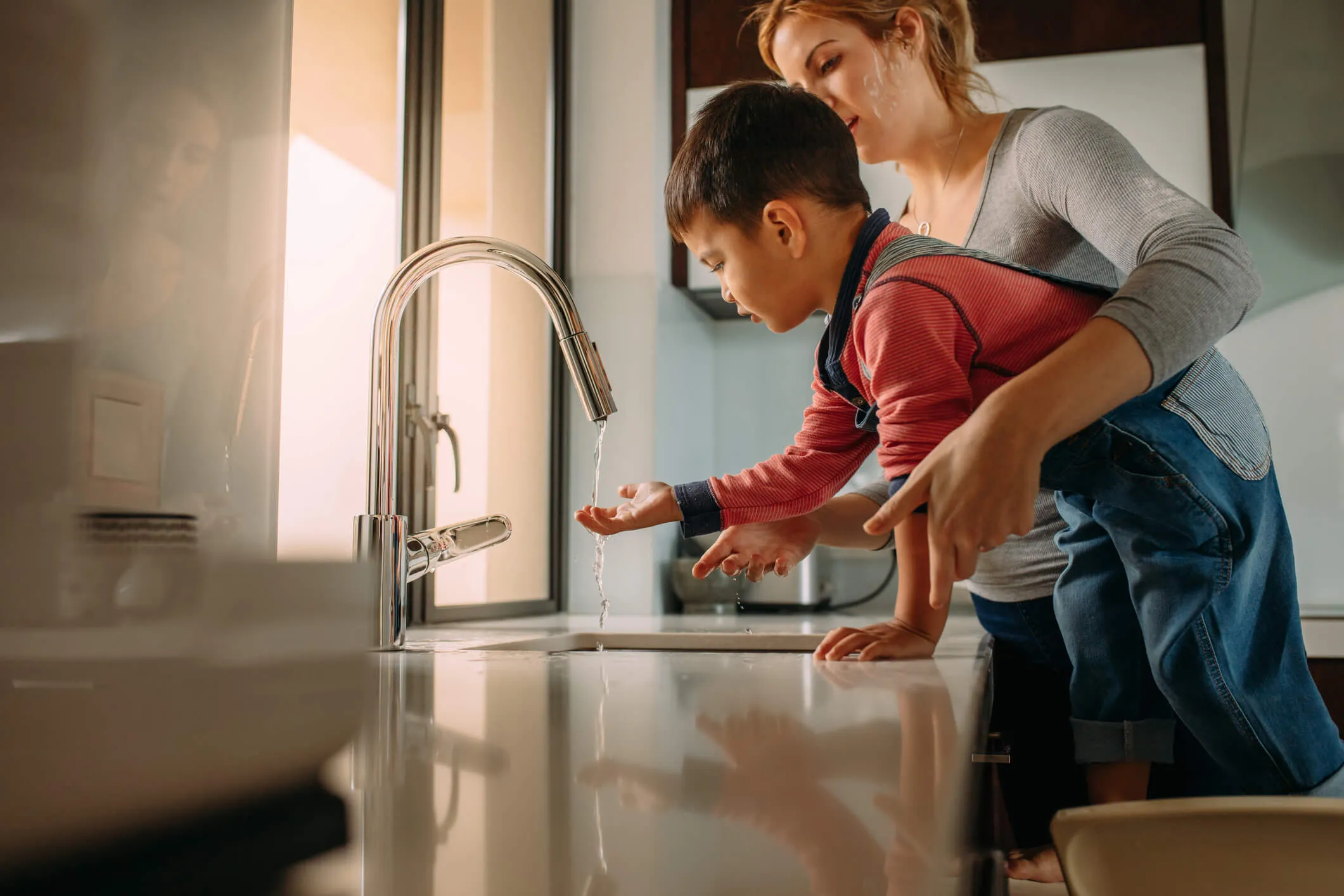What Is a Tankless Water Heater?
A tankless water heater, also known as an on-demand water heater, is a space-saving system that heats water exactly when you need it. Instead of constantly holding a supply of hot water in a large tank, a tankless unit heats water immediately to the right temperature when requested. This cutting-edge water heating method offers a number of perks, but before you switch to a tankless system it’s important to make sure it’s practical for your home in Edmonton.
How Does a Tankless Water Heater Supply Hot Water?
When you turn on a hot water tap, a sensor in the tankless unit detects the movement of water. This turns on a gas burner or an electric heating system, depending on your fuel source, which then quickly heats the water as it passes through the tankless water heater. As soon as you turn off the tap, the system turns off and stops heating, which prevents idle energy loss.
Five Reasons to Use a Tankless Water Heater
Many Edmonton residents have already switched to tankless water heaters to take advantage of these fantastic perks:
- Tankless water heaters supply lots of hot water: Picture your family happily taking numerous back-to-back showers without water running cold for the last person in line. That’s the reality that comes with a tankless unit, which provides virtually unlimited hot water when requested rather than taking up to an hour to warm up a tank of water.
- Going tankless is an energy efficient solution: Tankless water heaters are up to 34% more energy efficient than tank water heaters. The less hot water you require, the more electricity or gas and money you save. After all, you only pay to heat the water you need, instead of paying for a tank-style unit to always heat a big tank of hot water in the off chance you might actually need it.
- Tankless units have a longer service life: If you think you’ll be living in your home for many years, a tankless water heater is a smart investment. These units last over 20 years, which is almost two times as long as traditional tank heaters—which typically only last 10 to 15 years.
- Tankless units have a space-saving design: You may be accustomed to the bulky, cylindrical tank in your tank-style water heater. However, it isn’t required to be this way. Most tankless systems are about the size of a carry-on suitcase mounted to the wall. This means you can place them in tight spaces like utility closets or small utility rooms.
- There’s a lower risk risk of water damage with a tankless system: Due to the fact that tankless water heaters don’t have a big storage tank, there’s no risk of a burst tank damaging your home.
Is a Tankless Water Heating System the Right Choice for Me?
Tankless water heaters are an efficient appliance, but they aren’t ideal for every home. Evaluate these factors before taking the plunge into installing a tankless water heater in your residence:
- The cost of buying and installing a tankless water heater is usually higher: Tankless systems usually have a greater upfront investment compared to traditional tank-style water heaters. But, tax credits and rebates for energy-efficient home HVAC technology are often available to reduce the cost.
- The power of tankless units varies and some models require venting: Tankless units come in electric or gas models. Gas units have a stronger flow rate but will need venting to safely discharge exhaust gases from your home. If you don’t already have a vent, installing one in your home will add to the installation cost. Electric models are more straightforward to install but have lower performance. They also don’t qualify for those cost-saving HVAC tax credits.
- Tankless models must cope with temperature rise requirements caused by extreme weather: Tankless systems heat water as it flows through the appliance, which demands a significant temperature boost. The colder the water is before it’s heated, the more powerful the heater must be and the more energy the tankless unit will use. For example, if the groundwater temperature is 40°F during the winter in a province up north, and you want 110-degree water to flow from the tap, your system must handle a 70-degree rise. While this is achievable, it’s near the upper limit of what most gas-fired tankless water heaters can handle.
- Flow rate can be limited if too many appliances are used at once: Because tankless heaters don’t hold heated water, they can only supply a limited amount of hot water at once. The system’s flow rate indicates how much hot water you can use simultaneously, which is an important factor to consider if you have a house full of people who always want to shower at the same time the dishwasher and washing machine are running! One solution to avoid a drop in hot water is to install multiple point-of-use models in high-demand water taps. On the other hand, this raises upfront and operating costs.
- Tankless water heaters create a cold water sandwich: Tankless water heaters produce a “cold water sandwich,” which is a short burst of cold water made when the water heater cycles off and on. It also occurs if you only run a trickle of hot water that doesn’t provide enough flow to keep the tankless unit running. While merely a small annoyance, it’s better to be ready for it.
? Call Enercare Accent Today!
Your local experts at Enercare Accent are here to help you choose the right water heating solution, whether that’s a tankless unit or a traditional storage tank model. Thanks to our 100% satisfaction guarantee, you will have peace of mind knowing that our pros will have your unit set up and operating perfectly. Ready to upgrade? Have more questions? We’re ready to help! Just call 587-404-0790 today to get in touch with the team at Enercare Accent!


